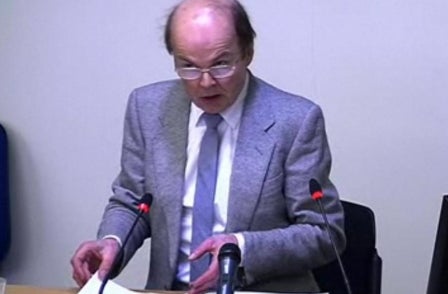
Retired teacher and libel victim Chris Jefferies has condemned the proposed Independent Press Standards Oganisation regulator for failing to include a compulsory arbitration service.
In 2011 Jefferies won a libel payout from eight newspapers after he was wrongly implicated in a murder.
Writing in The Guardian today he agreed with that paper’s concerns that the three largest national newspaper titles would have too much control over the new press regulator proposed by the newspaper and magazine industry trade bodies.
He said: “I write to applaud the Guardian's rejection of the plan for a press regulator put forward by the Murdoch titles, the Telegraph Group and the publishers of the Daily Mail.
“Their so-called Independent Press Standards Organisation (Ipso) would in reality be little more than a PCC MkII, a compliant industry poodle rather than an effective watchdog.
“From my point of view, its most troubling departure from the recommendations of the Leveson inquiry was the absence of a compulsory, free arbitration process for people with valid legal complaints against the press. This cornerstone of Leveson's reforms will guarantee access to justice for people of limited means, and the corporations behind Ipso cannot be trusted to deliver it.”
The IPSO press regulator makes provision of a libel arbitration service optional and dependant on coming up with a system which the whole publishing industry finds workable. Regional publishers have expressed concern that a libel arbitration system which is free for claimants will lead to “crippling expensive” payouts for their titles.
Jefferies has urged The Guardian to take a lead role in creating “a genuinely effective and independent self-regulator” which is compliant with the Royal Charter on press regulation backed by Parliament.
The Government, via the Privy Council, is currently considering whether to back a newspaper industry press regulation Royal Charter put forward by Pressbof which sets out the IPSO regulation system, or whether it backs a separate Royal Charter agreed between the three main political parties and campaign group Hacked Off in March.
Any new press regulator will need to be rubber-stamped by a recognition body underpinned by Royal Charter if it is to protect members from the threat of exemplary damages in libel cases as set out in the Crime and Courts Act 2013.
The Guardian today published a correction saying it was wrong to state that the Regulatory Funding Committee would have power over changes to the Editors’ Code of Practice. In fact the board of IPSO itself would have power to approve changes to the Editors’ Code under the proposed IPSO plan.
Email pged@pressgazette.co.uk to point out mistakes, provide story tips or send in a letter for publication on our "Letters Page" blog

